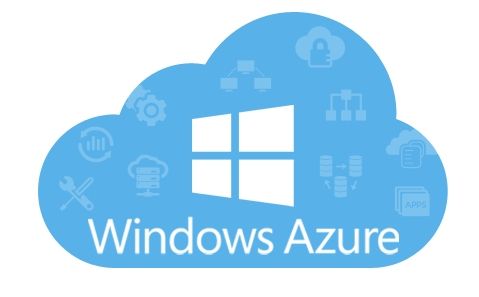Azure DevOps services for your business
Microsoft is the most popular software vendor worldwide, so it’s only natural for their customers to prefer hosting their MS applications and services with Azure. However, while the structure of MS Azure services is similar to the offers of other cloud platforms, the inner workings and configuration of these services differ from alternatives quite a lot. This means that the business must look for skilled Azure DevOps managed services, which are actually quite hard to find.
Why so? The reasons for this situation are multiple, but mainly they involve Microsoft Server OS family, which serves as a base for all Microsoft services, while all the rest of cloud platforms operate *nix OS family. Thus said, when a DevOps talent decides to specialize in working with AWS or GCP, he or she pretty much cut off the need to master Azure web services.

However, there simply are no alternatives to Microsoft Active Directory for enterprise businesses, as it is the only system capable of managing tens of thousands of employee profiles stored in geographically distributed databases with ease. The rest of Microsoft products like Skype for Business, Office 365, Outlook, Dynamics CRM and others are best to run on Azure so using this cloud computing platform is the best choice for business — and Microsoft proudly states that 80% of Fortune500 enterprises host their IT operations with Azure.
Thus said, if you want to benefit in full from using MS Azure web services, you need to hire DevOps talent with in-depth knowledge of all the intricacies of such operations. Where to find these skills? There are but 3 feasible approaches:
- Hiring DevOps engineers with Azure expertise in-house or as freelancers
- Subscribing to technical support from Azure or its certified partners
- Outsourcing to a Managed Services Provider company.
Let’s explore the benefits and shortcomings of each of these approaches.
Hiring Azure experts in-house
This seems like the best business decision for several reasons. You increase your team’s skill pool, retain the expertise in-house and can devote the talent to the tasks at hand full-time. However, several obvious limitations must be taken into consideration at once. If your business is not located in a huge IT hub, chances of finding decent Azure expertise are slim at best, and relocation can be quite a costly investment for a talent that might leave your employ at any moment.

In addition, finding a required talent can be a long task, but making it a part of the team can be an even more effort-consuming endeavor. Therefore, you must be ready to pay for recruitment and adaptation, HR-management and other expenses, not to mention a workplace and other office expenses. Add the possibility of talent falling ill, the need to go on a vacation or the risk of them deciding to quit the job — and you see the decision of having a DevOps engineer in-house starting to lose its sparkle.
Why not go for freelancers then? Hire them through platforms like Upwork or TopTal, select the top-rated specialists, secure the expertise when you need it without the demand for workplace or HR expenses? This is definitely a possibility — but many business owners don’t feel secure trusting their mission-critical systems to complete outsiders with little legal insurance, no matter their reputation.
Subscribing to Azure technical support
The reasons described above are compelling enough for many businesses to opt for technical support directly from Azure or its certified partners. The benefits are obvious — your tasks are accomplished by highly-qualified professionals that know all the nooks and crannies of Azure systems.

However, these specialists cost quite a lot (due to being certified Azure engineers) and have their hands full (due to a huge number of tickets they have to process every day). Thus said, the time to issue resolution can be quite long, which can lead to big losses. In addition, Azure specialists will build cloud systems using Azure components, meaning vendor lock-in. It is not as limiting as with other cloud platforms, as you are not likely to ever move out of Azure — but replacing at least some of the modules with open-source alternatives can provide significant savings.
Working with an IT outsourcing company
This approach has all the benefits of the previous two and neither of their limitations. You get access to skilled talents instantly. They work remotely and need much fewer expenses, as compared to office personnel. They have the expertise needed to make your project work — and they can do it using open-source tools wherever possible, to minimize the bills.
The only challenge here is finding a worthy contractor. We can only suggest you to google for the services you need and look at the price range, provided expertise, accolades earned and customer reviews for the companies you shortlist. A couple of technical calls will definitely help compare the professionalism of the team, so you would be able to select the best fit for your project! Good luck with that!
